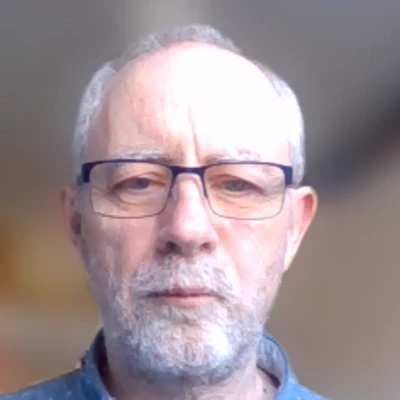Bridges 2024 Conference Programme
Wednesday 13 March 2024
08:55
Welcome and Introduction to Event Charity
08:55 - 09:05
09:05
Keynote 1: Future Spanning
09:05 - 09:35
- The challenges and opportunities in new technology (AI, machine learning) and how bridge design might develop.
- How this can be married with the pressing concerns of the climate emergency and the role of climate ethics.
- The interplay between design and fabrication.
- The process of craft, and how that applies to designers as well as makers.
09:35
Keynote 2: Transition to Second-Generation Eurocodes – What to Expect and When
09:35 - 10:05
- Background to the evolution of the Eurocodes
- Timetable for the transition to the second-generation standards
- Overview of key changes for bridge design
10:05
Keynote 3: Extreme Weather Events and the New Normal – the New Zealand Experience from Cyclone Gabrielle
10:05 - 10:35
- On 12 February 2023, Cyclone Gabrielle reached New Zealand and over the following two days caused widespread damage especially on the East Coast of the North Island.
- Heavy rain and winds caused major flooding, land slips, damaged homes, over 10,000 displaced and some NZ$2B in damage.
- This presentation will focus on the damage to both the Waka Kotahi New Zealand Transport Agency and Local Authorities bridge network, highlighting the scale of the damage, the response in the days/weeks that followed, an overview of risk and resilience, and the efforts to reconnect communities.
10:35
Bridge Management – a Heritage Railway Perspective
10:35 - 11:00
- Heritage railways contribution to the UK economy
- Management of assets on a heritage railway
- Inspection, assessment and maintenance of heritage railway bridges
11:00
Exhibition & Networking
11:00 - 11:30
11:30
Bridges Ten/20
11:30 - 12:20
- As part of the Bridges Conference programme, the organisers of Bridges 2024 have once again linked up with the Bridge Owners’ Forum and ADEPT to host a TEN/20 (aka Pecha Kucha) fast-paced session comprising mini presentations that would not necessarily warrant a full conference presentation slot but are nevertheless relevant and of interest to the bridge community.
- The session is open to exhibitors and delegates from local authorities and academia to deliver mini-presentations on bridge-related developments.
12:20
Bridge Inspections: Data and Assurance
12:20 - 12:45
- The importance of inspections:
- Data driven agile asset management
- Prolonging the service life and safety of bridges
- Sustainability-oriented maintenance management
- An update on the ongoing project to revise the current Bridge Inspection Manual:
- Recent changes in focus on inspections and asset data
- Use of technology for inspections and delivering consistency
12:45
Lunch
12:45 - 14:00
14:00
Aerodynamic and Climate Engineering to Address Climate Resiliency in Long-Span Bridges
14:00 - 14:25
- Long-span bridges must be designed for climate resiliency.
- Bridge monitoring, wind tunnel aerodynamic studies and numerical analysis can help evaluate the current state of the bridge, as well as components such as the cables, deck and hangers.
- By combining this understanding with site-specific wind and climate models, digital models can be created to predict responses to future windstorms and to inform design and rehabilitation decisions.
- Case studies will be used to demonstrate examples where early-stage consulting has benefitted both existing and new bridges.
14:25
Bridge Maintenance and the UNSDGs
14:25 - 14:50
- How can the management of bridges relate to the UN Sustainable Development Goals?
- What actions can we take in our everyday role to make a difference?
14:50
M42 NEC Access Bridge: Assessment and Bearing Remedial Work
14:50 - 15:10
- Serviceability issues with sudden lateral movement of deck due to bearing failure.
- Emergency remedial work.
- Unique complications encountered on bearing replacement.
- Medium-term solution.
15:10
Exhibition & Networking
15:10 - 15:40
15:40
Carbon Reduction in Temporary Works
15:40 - 16:05
- Is the embodied carbon associated with temporary works and construction (A5 lifecycle module) significant?
- Typical temporary works for bridge construction and their contribution to embodied carbon.
- How to decarbonise these items, including by making temporary works permanent.
16:05
Disruption and Carbon: Drivers to Innovation in Bridge Management?
16:05 - 16:30
- Bridge closures for maintenance and renewals can have carbon costs far larger than the materials used in the work.
- Innovation can improve the way we carry out renewals and strengthening, and minimise the environmental and economic impacts of bridge management.
- Case studies of innovative techniques past and present will illustrate the transformative way we can manage our vital links.
11:30
Fast-Running Numerical Analysis Methods for Masonry Arch Bridges
11:30 - 11:55
- Briefly review existing methods of analysis for masonry arch bridges.
- Outline the new ‘Thrust Layout Optimization’ (TLO) analysis method, which overcomes issues associated with traditional thrust line analysis.
- Explain how the ‘Discontinuity Layout Optimization’ (DLO) method can be extended to identify 3D failure modes in arches.
- Compare these methods with other fast-running analysis tools.
11:55
Bridge Diagnostics Using 3D Photogrammetric Survey
11:55 - 12:20
- 3D photogrammetric survey is a transformative tool for bridge management.
- A key part of its potential is in enabling detection and diagnosis of defects and forensic analysis of failures.
- Effective diagnosis requires different tools than provided in typical survey software.
- Our Reveal 4D software is designed to support this diagnostic interrogation of 3D surveys.
- The talk will demonstrate how simple but powerful tools allow the engineer to draw insight from surveys.
12:20
Closure of Menai Suspension Bridge: the Issue, Emergency Works, and Permanent Solution
12:20 - 12:45
-
Following a reduction to a 7.5t weight limit on the Menai Suspension Bridge in 2022, further analysis of the hangers was undertaken on Telford’s iconic structure to identify how failure of an individual hanger socket would affect the structural integrity of the whole bridge.
-
This revealed that the majority of load would transfer into adjacent hangers and for all traffic load models had the potential to cause catastrophic failure of the entire deck.
-
This talk discusses the details of the project, including the analysis, temporary works solution employed to re-open the bridge, and details of the new permanent hangers currently being manufactured in Switzerland.
12:45
Lunch
12:45 - 14:00
14:00
Insight through Load Testing
14:00 - 14:25
- A overview of multiple schemes involving load testing of bridges.
- Picking out the unique and novel examples, the presenters will share their experiences of supplementary and proof load testing on large and small structures.
- Capturing useful pointers for when load testing is possible, available techniques, problems encountered, and limitations.
- As we continue to extend the service life of many bridges, the use of load testing can be the key to insight beyond numerical assessment modelling.
14:25
Collaborative Reporting for Safer Structures (CROSS)
14:25 - 14:50
- An introduction to confidential and voluntary safety reporting and CROSS.
- A brief history of the development of CROSS and its mission.
- Examples of CROSS Safety Reports and how lessons learned are shared.
- Examples of CROSS Safety Alerts, including, Reinforced Autoclaved Aerated Concrete (RAAC).
- How to become involved and contribute.
14:50
Ground Stabilisation Using Low-Carbon Geopolymer Technology and its Application in Transition Zones and Embankments
14:50 - 15:15
- Introduction to Geopolymers including basic properties
- Ground improvement theory
- Transition zone design
- Carbon saving using Geopolymer
Thursday 14 March 2024
09:25
Introduction and Update on BOF Grand Challenges
09:25 - 09:30
09:30
Ethics and the Engineer
09:30 - 10:30
- What do we mean by ethics?
- Collapse of Carillion
- Bad justice
- The five R's: reduce, reuse, repair, recycle, recover
- Modern-day slavery: the speaker requests attendees watch this 11-minute video prior to his seminar
10:30
Exhibition & Networking
10:30 - 11:00
11:00
Panel: Reducing Carbon in Bridges – from Planning to Execution Following PAS 2080
11:00 - 13:00
- Comprising representatives from across the supply chain (client, designer, contractor and supplier) this seminar will consider how stakeholder's experience when applying PAS 2080, barriers to its use, and how it contributed to reducing carbon, as well as other outcomes.
- There will be opportunities for audience participation and discussion throughout the session.
Speakers
13:00
Lunch
13:00 - 14:00
14:00
Incorporating the Digital into Bridge Asset Management
14:00 - 15:00
- The transition from paper based bridge asset management to Excel was considered to be a major breakthrough, when it occurred over 30 years ago.
- With developments in computing power, digital twins and artificial intelligence, we should be in a utopia of digital asset management.
- Unfortunately there are still horror stories of millions being wasted on clunky digital “solutions” are still occurring.
- This workshop session will present an overview of the opportunities and challenges relating to the implementation of a digital bridge asset management system, asset owners experiences, introducing digital twin maturity levels, and examples of successful development and implementations of fit for purpose solutions using proprietary software packages.
- The workshop will also have breakout sessions for the attendees to discuss and consider the different topics, with the aim to better understand the benefits of incorporating digital solutions within a bridge asset management context.
Speakers
15:00
Exhibition & Networking
15:00 - 15:30
15:30
Roundtable: Whole-life Design, Construction and Maintenance
15:30 - 16:15



































